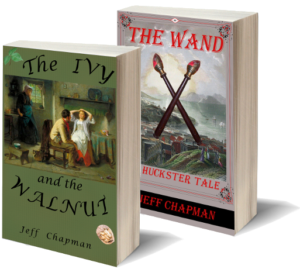
Ariadne and Theseus by Niccolò Bambini (1651–1736).
Clue has undergone a radical transformation from its original meaning to its present day usage, and it’s all due to a famous story. If you asked someone in medieval England for a clue, they would not give you information to solve a mystery. Instead, they would hand you a ball of thread.
The modern word clue is a phonetic variant of clew which meant a ball of thread or yarn. Used in northern English and Scottish, clew derived from the Old English word cliewen, which meant skein or ball. The modern sense of the word clue developed in the late sixteenth and early seventeenth centuries when the word clew became associated with the ball of thread that the Greek hero Theseus used to find his way out of the Labyrinth.
According to the ancient Greek story, the eldest son of King Minos of Crete was accidentally killed in Athens. Enraged, Minos attacked Athens and demanded a yearly tribute of seven young men and seven young women. The captives were taken to Crete and fed to the half-man half-bull Minotaur living in the Labyrinth under King Minos’s palace. Theseus offered himself as one of the captives.
When [Theseus] arrived at Crete, as most of the ancient historians as well as poets tell us, having a clue of thread given him by Ariadne, who had fallen in love with him, and being instructed by her how to use it so as to conduct him through the windings of the labyrinth, he escaped out of it and slew the Minotaur, and sailed back, taking along with him Ariadne and the young Athenian captives.
From John Dryden’s translation of Plutarch’s Theseus.
So toss your cat a clue. Your furry friend will thank you.
Attribution: By Creator: Niccolò Bambini [Public domain], via Wikimedia Commons. By Loliloli (Own work) [Public domain], via Wikimedia Commons.



Very interesting. Who would have thought? Thanks for sharing!
I had no idea what a clew was until now. I’d love to give my cat a clew and a clue! *LOL*